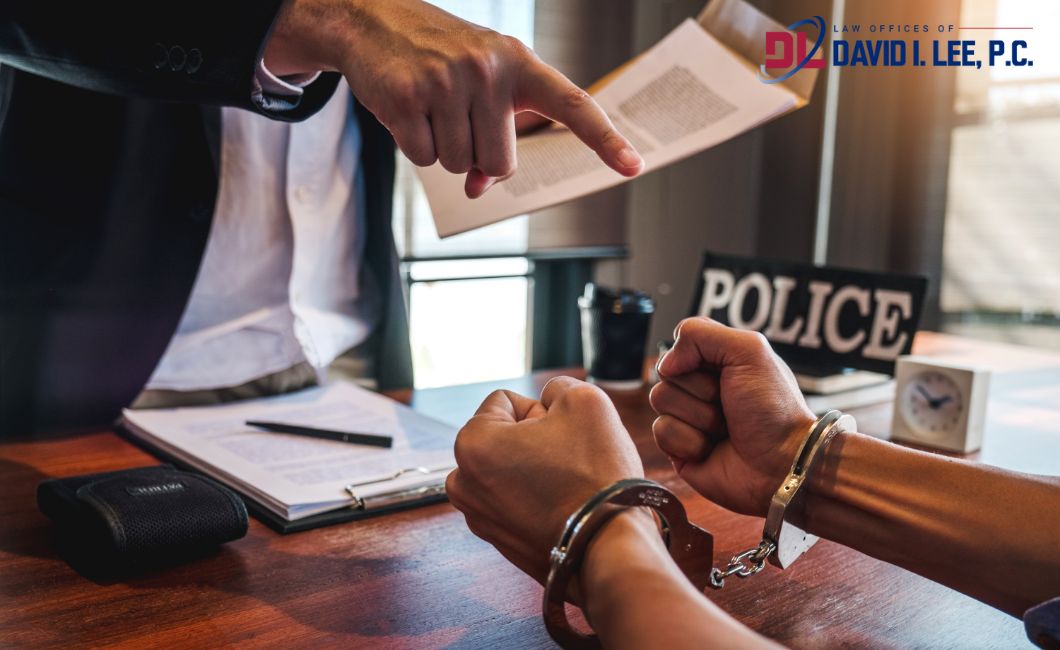Marietta Murder Defense Lawyer

Marietta Murder Defense Attorney
In Georgia, murder is considered one of the “Seven Deadly Sins,” each of which carries a minimum of 10 years imprisonment without parole. Furthermore, 90% of the offenders in these crimes serve the entirety of their sentence. Therefore, defendants charged with murder are facing very serious, life-changing charges. Being that murder is aggressively prosecuted in Georgia, only a seasoned Marietta murder defense lawyer can potentially improve the outcome of a murder case.
The Law Office of Lawrence J. Zimmerman is an experienced criminal defense law firm in Marietta. Our attorney has countless success stories of past cases in which his clients were exonerated of changes, or their convictions were reversed. With more than 25 years of defending clients with criminal charges in Marietta and the surrounding Cobb and Atlanta areas, we can defend you against a variety of murder charges.
Speaking with a criminal defense lawyer who knows Georgia law is crucial, as they can navigate the legal system, skillfully negotiate with prosecutors, and litigate flawlessly to defend your rights. That criminal defense attorney is Lawrence J. Zimmerman.
What Is the Difference Between Homicide, Murder, and Manslaughter?
When facing criminal charges, it’s important to understand how homicide and manslaughter are different from murder.
Homicide
Homicide occurs when one human being kills another human being. While all murder is homicide, not all homicide is considered murder. Homicide is sometimes considered justified and, thus, lawful. Lawful homicide includes intentional acts, such as self-defense, or accidental events, such as a car accident or a lethal execution by a government.
When someone kills someone else in a criminal capacity and in an intentional or violent manner, such as in murder, it is considered criminal homicide.
Manslaughter
Manslaughter is the unlawful killing of another person. However, the individual did not directly intend to kill, which would be murder. Contrary to murder, manslaughter is not intentional or premeditated, but it can be voluntary or involuntary.
Voluntary manslaughter occurs when someone causes the death of someone in the heat of the moment. An example would be someone who was killed in a fight.
Involuntary manslaughter occurs when the unintentional yet negligent or irresponsible actions of one person cause the death of another person. An example would be a drunk driver causing an accident in which someone dies. Another example occurs when a doctor prescribes the wrong medication to a patient, and the patient dies as a result.
Defense Strategies for Murder Charges
There are several defenses against murder charges. Some of these include:
Insanity
Pleading insanity means that the defense can prove, beyond a reasonable doubt, that the defendant was suffering from a mental disorder or defect while the crime was committed. This means that either:
- The defendant could not determine right from wrong.
- They had an irresistible urge to commit the crime and, while they knew that they were committing it, they were unable to stop due to their mental state.
The insanity defense is not commonly used since it requires an admission of guilt. If the jury does not believe that the defendant was acting out of insanity, it becomes an easy guilty verdict. It also often leads to the institutionalization of the defendant.
Defense of Self
Self-defense is often a common defense strategy when crimes such as battery, assault, murder, or other violent acts are justified by the defendant due to the threat of violence against them by the victim in question. For this strategy to be accepted by a jury, it typically requires the violence against the defendant to be of equal or greater measure than that of the defendant toward the victim.
Defense of Others
Pleading defense of others declares that the defendant was acting in defense of someone else who was receiving violence from the victim. Many times, a defendant will claim to have been defending a spouse, a child, or another person from getting physically hurt by the victim to explain why they committed the crime.
Defensive of Property
A defense of property strategy is used when there was forced violence against the defendant by their victim, as their home or some other property was being damaged or threatened by the victim.
FAQs About Marietta, GA Murder Defense Law
Does Georgia Have a Stand-Your-Ground Law?
Georgia does have a stand-your-ground law, which permits deadly force when necessary for self-defense if there is no option to retreat from danger. In other words, deadly force is permitted if it is absolutely required to protect one’s own safety, and you will not be charged with murder under those conditions.
What Is the Murder Code in Georgia?
The Georgia code for murder sets the legal definition for the offense. It describes the crime as the act of a person who illegally and with express or implied hostile intentions causes another person’s death. Georgia law includes only first- and second-degree murder. Penalties for murder include life imprisonment, life imprisonment without parole, and death.
How Much Time Do You Get for Murder in Georgia?
In Georgia, a murder conviction carries a minimum penalty of life in prison. More severe convictions can be sentenced to life in prison without parole and the death sentence. Murder in the second degree will carry a penalty of prison time from 10 to 30 years. This is why it is critical to have an experienced attorney defend you against these charges.
What Is the Felony Murder Rule in Georgia?
A felony murder in Georgia is an instance of murder that is committed while engaging in another felony. For instance, someone sets a house on fire as an act of arson, and someone dies as a result of that arson. The defendant did not necessarily intend to commit murder per se, but someone died in the process nonetheless.
Retaining a Marietta Murder Defense Lawyer
Murder charges, no matter the degree or severity, are severe charges in Georgia and are generally prosecuted aggressively and relentlessly. Whether the charge is for murder or manslaughter, criminal defendants of murder need an experienced criminal defense attorney to represent them and advocate for their rights on their behalf. It can only help their case. In a Georgia murder trial, the defendant has everything to lose.
A successful and experienced Marietta murder defense lawyer can review your murder charges and legal options. Contact The Law Office of Lawrence J. Zimmerman immediately to schedule a consultation.
Office Location
Meet With A Lawyer
Schedule A Consultation
Fields Marked With An “*” Are Required









